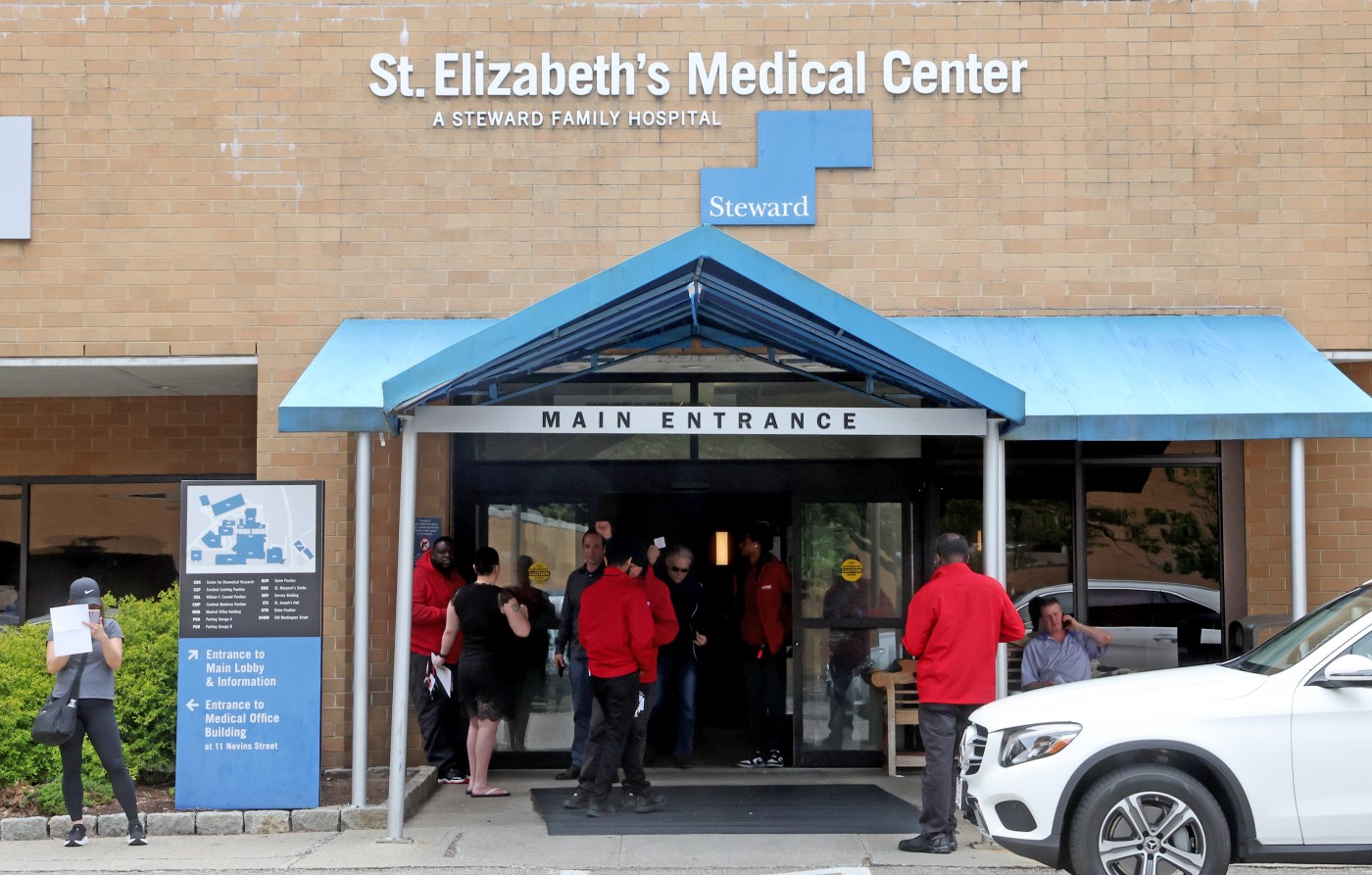
Mass. House takes aim at Steward Health Care hospital crisis with policy response
House lawmakers voted 152-1 to ban the type of lease agreements between hospitals and health care real estate investment trusts that Beacon Hill legislators argue helped push the distressed Steward Health Care system into bankruptcy.
In passing a wide-ranging health care bill Thursday, representatives took their first shot at responding with policy to a crisis that has the potential to upend care for thousands of residents across Massachusetts. Lawmakers behind the bill have argued it is one of the most significant health care reforms in a decade.
State Rep. John Lawn, a Watertown Democrat who co-chairs the Health Care Financing Committee, said the proposal will make sure that “mistakes of today are not repeated in the future” and close loopholes in the regulatory process that were “exploited by bad actors.”
“This bill will increase transparency of hospital and other provider financing by requiring disclosure of parent company private equity and for=profit involvement,” Lawn said. “Steward has fought state regulators for years not to disclose basic information that all other hospitals in the commonwealth share. This legislation will give state regulators new enforcement powers to make sure providers comply with reporting requirements.”
The legislation bars the Department of Public Health from issuing licenses to acute care hospitals if they are leasing the land on which their main campus is located — or the area where a majority of inpatient beds are located — from a health care real estate investment trust.
Related Articles
Business travel bouncing back at Logan International Airport, aviation official says
MassPort names New York’s Richard Davey and Miami-Dade’s Eulois Cleckley as CEO finalists
Health regulators found multiple violations at Norfolk prison turned shelter during inspection in 2015
Massachusetts House eyeing climate bill as sprint to end of formal sessions starts
MassPort close to finding next chief executive officer with finalists due Thursday
A prior version of the bill would have required hospitals seeking a state license to own the land under their facilities but the language was deleted when House Democrats released a redraft earlier this week.
Mariano said his lieutenants changed the bill after finding there were “a lot of good actors,” including medical schools, who do not own their land.
“There were so many exemptions to this that we just said you have to be headquartered on the land that you own because obviously, the guys who were getting the money from the land sale were the executives in the corporation not the guys running the hospital,” Mariano said.
Acute care hospitals seeking a license from the Department of Public must disclose as part of their application all documents related to any lease, according to the proposal.
Lawn said Steward Health Care sold the land out from underneath its facilities to a real estate investment trust and committed its hospitals to “paying predatory rates, rents, and fees that were unsustainable.”
“This bill prohibits DPH from issuing a license to establish or maintain an acute care hospital if the applicant leases the land for which the main campus is located from a healthcare real estate trust,” he said.
The bill also bans contracts between vendors and health care entities that allow for the repossession of medical or surgical equipment without 60 days prior notice to the Department of Public Health and “makes such terms void as against public policy of the commonwealth,” a run-down of the proposal provided by Mariano’s office said.
Lawn said the policy proposal is in response to a story from October that detailed a young mother delivering a baby at Steward Health Care’s St. Elizabeth’s Hospital in Brighton.
“She tragically died because the medical equipment that would be used to save her life had been repossessed for Steward’s failure to pay its bills,” Lawn said. “To prevent a similar tragedy, this legislation requires creditors, vendors, and hospitals to notify the state 60 days before any possible repossession of medical or surgical equipment.”
The legislation also extends beyond Steward-related issues.
Lawn said the measure addresses the sudden closure of medical centers run by Compass Medical last summer, which left patients with primary care physicians at the facilities scrambling to find new doctors.
The bill, according to Lawn, will require 90 days’ notice before they stop treatment and provide patients resources to find a new doctor.
“We know as anyone who’s tried to contact and try to get an appointment with a primary care doctor, it could take several months for a patient to get an appointment. And with an aging physician workforce, more providers will be exiting the practice,” Lawn said.


